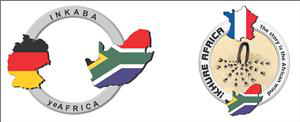Speaker
Ms
Charmaine Mahlagaume
(Tshwane University of Technology)
Description
One of the fundamental requirements to the study and understanding of seismicity in any region is through the accurate location of earthquakes within the area of interest, determining spectral parameters and seismic moments. The principle aim of this study is re-evaluating the phase readings and location of the instrumentally recorded earthquakes in the Eastern Cape Province of South Africa during the period 1980 to 1989. The basis of this research was formed from the earthquake bulletins compiled from routine seismic analysis. These bulletins in principle consist of phase information (most often body-wave travel-time readings) observed at different seismological stations. These observations are then reduced to earthquake locations (epicenters).
The phase readings mentioned above are detected from the seismic stations built in an area depending on how quiet the local conditions are, the lower the background noise from human and natural resources such as traffic, the more likely the station will be able to detect earthquake signals. The phase information was typed in as digital record, to re-locating the event using the SEISAN earthquake analysis software.
In the Eastern Cape I entered phase readings from registered local and regional earthquakes manually and relocated the events from the existing phase reading data. Using this program you are able to search the data base for particular events without extracting the events. In addition, secondary seismic phases will be determined through a ray-tracing technique to better restrain earthquake depths in the region. A uniform magnitude scale will be adopted and the focal mechanism of the largest earthquakes determined where sufficient phase readings are available. The resulting database will be used to ascertain whether the recorded seismicity can be related to existing geological lineaments and tectonics in the Eastern Cap
Primary author
Ms
Charmaine Mahlagaume
(Tshwane University of Technology)

